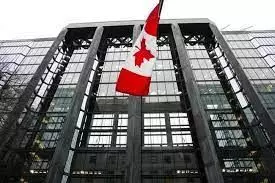January 2025 Market Update.. Trump effect & interest rate cuts..

Victoria, BC Real Estate Market Update - January 2025
As we enter 2025, Victoria's real estate market is showing signs of renewed activity, influenced by recent economic developments, the Bank of Canada's latest interest rate decision, and potential impacts from the new U.S. administration. This report provides a comprehensive overview of the current market conditions and factors that may shape its future.
Interest Rate Cut and Market Activity
Today, the Bank of Canada announced a 25 basis point cut to its key interest rate, bringing it down to 3%. This marks the sixth consecutive rate reduction since June 2024, signaling the central bank's ongoing efforts to stimulate economic growth. The rate cut is expected to have a positive impact on the local real estate market. In December 2024, Greater Victoria saw a 31.2% year-over-year increase in home sales, indicating growing momentum in the market.
Property Values and Pricing Trends
According to the latest BC Assessment data, most homeowners in Victoria can expect minimal changes in their 2025 property assessments, generally within the range of -5% to +5%. Specifically, average residential valuations in Victoria dropped by 2% compared to the previous year. The composite benchmark price for properties in Greater Victoria stood at $1,171,500 as of December 2024, showing a slight 0.5% increase from the previous year.
Market Balance and Inventory
The Victoria market appears to be moving towards a more balanced state. There were 2,290 active listings at the end of December 2024, representing a 7.4% increase from the previous year. This improved inventory, combined with lower interest rates, could create more opportunities for buyers while maintaining steady demand.
Impact of U.S. Administration on Local Economy
The new Trump administration's policies could significantly impact Victoria's economy and, by extension, its real estate market:
Trade Impact
The proposed 25% tariff on Canadian goods could affect Victoria's export-oriented businesses, particularly in industries such as wood and paper products, metallic minerals, and energy.
Real Estate Market Implications
- The potential economic slowdown resulting from tariffs might reduce housing demand and put downward pressure on prices.
- Construction costs could increase if tariffs are applied to building materials, potentially slowing down new developments.
- Uncertainty created by trade tensions might cause some potential buyers to delay their purchases, leading to a temporary market slowdown.
Tourism and Local Businesses
Victoria's tourism industry could see mixed effects. A weaker Canadian dollar might make Victoria more attractive to U.S. tourists, but increased border tensions could discourage some visitors. Local businesses relying on cross-border trade or U.S. suppliers might face challenges such as increased costs and supply chain disruptions.
Employment and Economic Growth
The job market in Victoria could be impacted if local businesses face economic pressures due to tariffs. The B.C. government has estimated that the province could lose 124,000 jobs by 2028 if the 25% tariff is implemented, with Victoria likely seeing its share of job losses.
Factors to Watch
Several factors could influence the Victoria real estate market in the coming months:
1. **Economic Uncertainty**: The threat of potential U.S. tariffs on Canadian goods may impact overall economic sentiment.
2. **Population Growth**: The Capital Regional District is experiencing faster-than-expected population growth, which could drive housing demand.
3. **Housing Supply**: Victoria has been successful in meeting new housing targets set by the provincial government, which may help address supply issues.
4. **Investor Activity**: While still present, investor buying in Victoria has decreased compared to previous years.
5. **U.S.-Canada Relations**: The evolving trade relationship between the two countries could have significant implications for Victoria's economy and real estate market.
Outlook and Mitigation Strategies
As we move further into 2025, the Victoria real estate market is positioned for increased activity, but with potential challenges. The combination of lower interest rates, stabilizing property values, and improving inventory levels suggests a more dynamic market ahead. However, economic uncertainties and potential policy changes from the U.S. administration could influence market conditions.
Local authorities and businesses in Victoria might need to consider strategies to mitigate potential negative impacts:
- Diversifying trade partners and markets beyond the U.S.
- Focusing on developing and strengthening local supply chains
- Promoting Victoria as a destination for international investors and tourists from countries other than the U.S.
In conclusion, while the full extent of the impact remains uncertain, it's clear that Victoria's real estate market and broader economy are not isolated from U.S.-Canada trade tensions. Buyers, sellers, and investors should stay informed and prepared for potential economic shifts in the coming months and years.
Recent Posts










“Whether it’s your first apartment or pied-a-terre, a newly developed condo or a waterfront estate, our Advisors will work with you to understand your requirements and achieve your priorities.”
~ Adrian Langereis